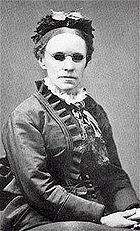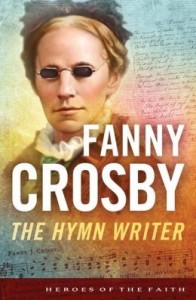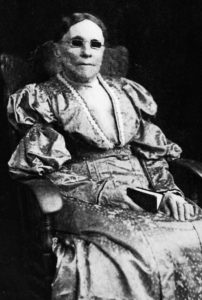
She most often wrote songs centered around the themes of salvation, personal devotion to God, service to God, and heaven. Her comforting words connect deeply with singers because she wrote from life experience, from the comforting vantage point of biblical truth. Her faith was simple, honest, and rejoiced in proclaiming the gospel. Living Hymnsįanny's hymns swelled in popularity because they were relatable. Fanny's hymns have stood the test of time and to this day are known, loved, and sung in churches. Over the course of her life she churned out over 8,000 hymns, publishing many under a variety of pen names. Through these key relationships and the forging of friendships, Fanny found a home with many hymn publishers and a vast audience for her faith-filled lyrics.

Each noted her uncanny ability to hear a melody and quickly match deep and thoughtful lyrics to their tunes.

During her lifetime, she rubbed elbows and formed friendships with around twenty Presidents of the United States of America.īecause of Fanny's prolific ability to write poetry and verse, she was introduced to and privileged to work with several very influential composers. She had the honor of being the first woman to address the Congress of the United States and also was invited to dine several times at the White House. She quickly developed a reputation among the staff and many visiting celebrities that came to see the famous school, which led to invitations to write and speak for even more prestigious venues. Our Father loves us and wants to use us for the work of His kingdom, despite our limitations. A natural at composing verse, she wrote stanzas as a diary for herself, as gifts or letters for friends, for classes, school chapel assemblies, and the institution's large public events and celebrations. She was a model pupil and was given countless opportunities to excel in her blossoming giftedness as a poet. A Life of Opportunitiesįanny thrived under the instruction of the acclaimed institution. It was here, in New York City, where a whole new world of opportunities would open up for her. As a child she was able to commit the first five books of the Bible to memory in their entirety.Īt the age of fifteen, Fanny's prayers for a formal education were answered when she was admitted to the New York Institution for the Blind.

As Fanny listened, she memorized whole chapters and long portions of both Old and New Testament writings. She spent countless hours reading to young Fanny long selections of literature and poetry and, most frequently, the Bible.

Her mother, Mercy Crosby, taught her "that sometimes Providence deprived persons of some physical faculty in order that the spiritual insight might more fully awake." 1 The family knew God as their "source of true pleasure and believed that all they had-meager or abundant-came from God's hand." 2įanny's grandmother challenged her to fight for her education. While most families would be devastated by such a crippling disability, Fanny's family saw the loss as a divine act of providence. You may be less familiar with her story and how she found a place in the hearts of those who so joyfully sing her songs.įrances Jane Crosby was born in 1820 and lost her eyesight in infancy. "Blessed Assurance," "Praise Him, Praise Him, Jesus Our Blessed Redeemer," "To God Be the Glory," "All the Way My Savior Leads Me," and "Rescue the Perishing" are just a few from her vast repertoire. Fanny Crosby is easily one of the most recognized, well-loved, and influential hymn writers in history.


 0 kommentar(er)
0 kommentar(er)
